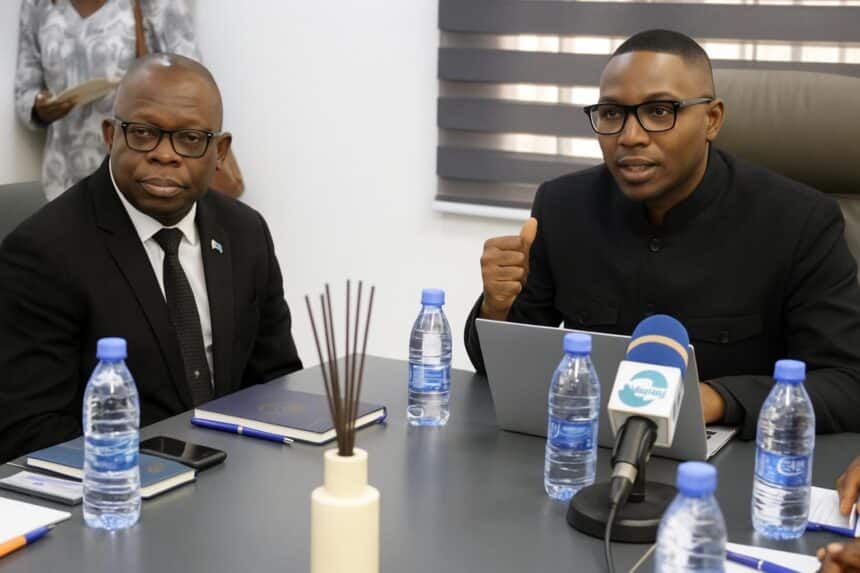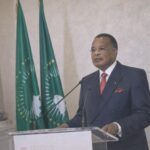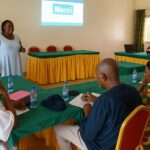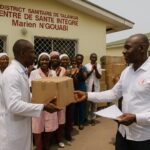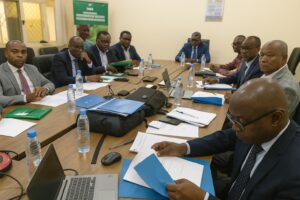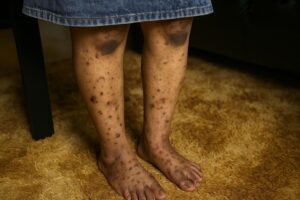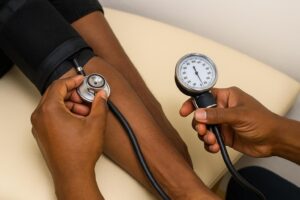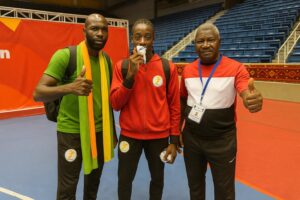WHO backs MCPLC campaign
The small Brazzaville-based association Marcher Courir Pour La Cause, better known as MCPLC, has just scored a decisive ally in its campaign against non-communicable diseases: the World Health Organization. On 17 September, WHO country representative Dr Vincent Dossou Sodjinou visited the brand-new Elombe Health and Sport House.
Standing in the sunlit fitness hall, Dr Sodjinou praised the NGO’s grass-roots energy and declared that its vision “fits exactly with WHO strategic pillars for preventing and controlling non-communicable diseases in Congo.” His promise: practical support and a bridge with government programmes.
Elombe House: sport meets health
For MCPLC president Rodrigue Dinga Mbomi, the unannounced visit marked a milestone. “We wanted the WHO to see where community donations have gone,” he told reporters, pointing to treadmills, consultation rooms and posters explaining how simple exercise routines slash diabetes risk.
Elombe House itself is the product of a sparkling charity gala held last year. Ticket sales, art auctions and corporate pledges raised the francs needed to turn a former warehouse on Avenue Trois-Martyrs into a cheerful hub where residents can walk, stretch and learn about diet.
Mayombe Crossing data drives action
The NGO’s message is simple: prevention begins on your street corner, not only in hospitals. That philosophy has already travelled far beyond Brazzaville. During the fifth edition of the “Mayombe Crossing” in 2025, MCPLC volunteers screened 3,000 walkers for blood-sugar and blood-pressure anomalies.
Test strips, stopwatches and music turned the forest trail into an open-air clinic. “Some participants discovered they were pre-diabetic and changed their lifestyles immediately,” recalls programme coordinator Leïla Ndele. The WHO team, presented with the event’s glossy report, called the numbers “encouraging and actionable.”
Taxi Bomoyi mobilises drivers
Data gathered in Mayombe now underpins the association’s next campaign: turning taxi drivers into rolling health ambassadors. The “Taxi Bomoyi” contest, scheduled for the International Diabetes Day on 14 November, will reward the most committed chauffeurs with fuel vouchers and smartphone airtime.
Each participating cab will carry colourful stickers urging passengers to get screened, while drivers receive basic training to spot symptoms and hand out referral cards to nearby clinics. “Taxis touch every neighborhood and every income bracket,” argues Dinga Mbomi. “They are perfect community relays.”
Culture nights to decode prevention
Culture remains another pillar. A second “Elombe Night”, mixing live rumba, stand-up comedy and low-sugar cooking demos, is pencilled in for December. Event planner Gloria Nkani says the format breaks down medical jargon. “People dance, they laugh, and suddenly prevention feels personal, not punitive.”
Towards national policy synergy
WHO is keen to channel that creativity into national policy. Dr Sodjinou hinted at a forthcoming memorandum that could list MCPLC’s projects as reference models in the Ministry of Health’s non-communicable disease roadmap. Such recognition would ease access to diagnostic kits and training modules.
Congo-Brazzaville, like many middle-income nations, faces a dual burden. Communicable diseases still demand attention, yet WHO estimates non-communicable illnesses cause almost four in ten deaths nationwide. Diabetes alone affects roughly 6% of adults, often untested until complications appear.
Government strategies range from food-labelling standards to the expansion of primary-care screening. Civil-society groups such as MCPLC serve as amplifiers, bringing practical advice to markets, schools and offices. Health economist Pierre Mouyabi notes that public-private partnerships reduce costs and accelerate behaviour change.
Expanding the focus beyond diabetes
The team at Elombe House is already thinking beyond diabetes. Hypertension, chronic kidney disease and certain cancers share many lifestyle risk factors. Future workshops will cover portion sizes, salt alternatives and the importance of regular check-ups, especially for working adults who rarely find time.
Dr Sodjinou stresses that WHO’s support will be “accompaniment, not substitution.” Equipment donations may arrive, but responsibility for day-to-day sessions will stay local. That autonomy pleases MCPLC volunteers like personal trainer Justin Mabiala, who values the freedom to adapt routines to residents’ preferences.
Looking ahead, the NGO hopes the upcoming budget cycle will earmark municipal funds for footpaths and public gym zones near schools. Urban planners from the Ministry of Equipment have been invited to Elombe Night, signalling a broader conversation between sports infrastructure and public health goals.
Symbolic boost and community vibe
For now, MCPLC celebrates a vote of confidence few small charities receive. As dusk fell on Elombe House, staff posed with the WHO delegation for photos they quickly shared on Telegram. Each snapshot carried the same caption: “Together, we move Congo toward healthier tomorrows.”
Outside experts see symbolic value in the alliance. “When the WHO endorses a neighbourhood initiative, investors and insurers usually follow,” observes Dr Mireille Bemba, lecturer in preventive medicine at Marien Ngouabi University. She believes joint metrics could unlock research grants and student internships.
Back in the exercise hall, music from a practice Zumba session pulsed through the speakers. Teenagers copied the instructor’s steps while elders cheered from benches. The scene captured MCPLC’s philosophy: every generation has a role in lightening the country’s growing burden of lifestyle-related illness.

